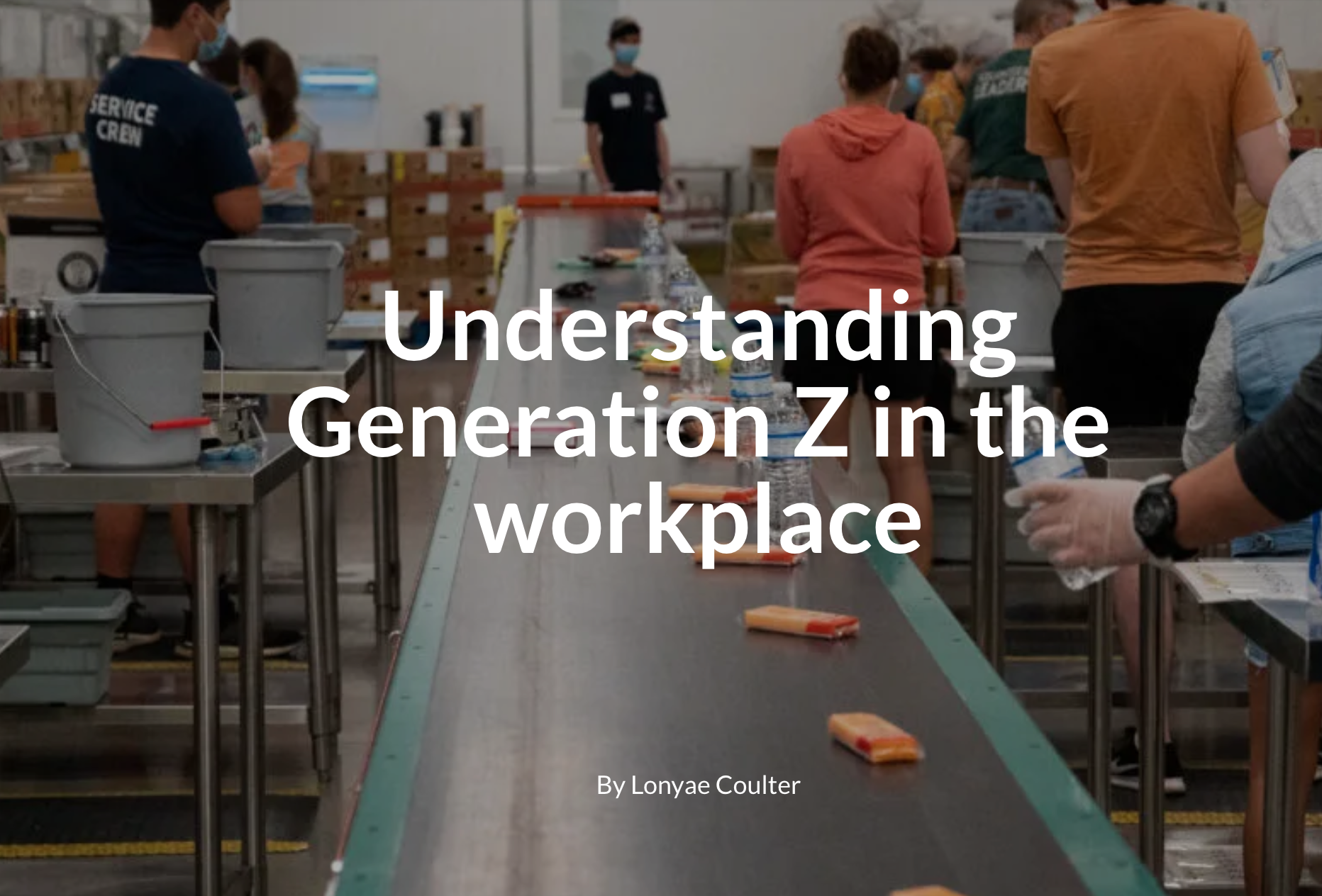What influences a generation? The impact of tech, transportation and more

Generational keystones characterize a specific generation and are based upon shared behaviors, values and beliefs of those individuals while also influencing the cultural foundation of subsequent generations.
Each generation — Traditionalists, Baby Boomers, Gen X, Millennials, and Gen Z — builds on the keystone of past generations.
The Traditionalist generation was born amid the Great Depression. They also early technology with with the emergence of early TVs and radios.
Baby Boomers — those born after World War II and the mid-1960s — were part of the anti-war, women's and civil rights movements.
Gen X is otherwise known as the "latchkey" generation of working parents. They witnessed the Challenger explosion and came of age during AIDS/HIV crisis.
Millennials grew up during the start of the digital age and saw the shadow of terrorism from 9/11 cloak the nation.
Gen Z is sometimes referred to as the "iGeneration" because of its close association with the digital boom and the introduction of web 2.0.
Keystones are varied and can range from transportation and technology to communication and entertainment, but they aren't limited to any set category.
The fluidity of keystones coupled with influence from parents results in a continuous overlap of values and beliefs that constantly affect the previous and future generations' interpretation of varying events.
Technology

Technology is an exponentially growing field that has impacted all the generations in both positive and negative ways.
As children, many individuals part of the Traditionalist generation had positive experiences using the varying forms of technology available to them at the time.
Alvin Fouts, born in 1944, said TV was initially a very important investment of both space and money.
“TV used to be quite the investment into a piece of furniture. Now they have 65-inch televisions for $300, it’s unbelievable,” Fouts said.
In addition to the cost, low quality and heavy TVs, only three major networks provided all of the programs.
A lack of at-home entertainment led many kids and teens of this time to go outside and hang out with the rest of the kids in the neighborhood.
Many Baby Boomers (1946-1964) experienced the rapid technological developments that laid the foundation of the digital boom.
“The games we had were paper games, Strat-O-Matic football, a lot of card games, electric football,” said Baby Boomer Darryl Ledbetter, born in 1962. “But I remember Atari and Pong, which was the first generation digital game. I was about in high school at that time and the digital gaming industry started then and it is what it is right now.”
Gen X (1965-1979/80) saw major technological advancements during their early years and throughout their life.
When the application of technology was first conceptualized, it was geared toward helping society become more efficient in the workplace.
But when technology is misused or implemented incorrectly, it can become a distraction.
Josh Langley, born in 1977 (Gen X), is an entrepreneur who has been a part of many diverse business adventures and used technology to advance in his work.
“Your competition is using that technology, and if you're not willing to adapt to change then you will become extinct,” Langley said. “[Technology is] a double edge sword. It increases productivity so we can accomplish a lot more tasks in a shorter amount of time, but it takes that human element out of it as well.”
Millennials have a unique perspective on technology because they were born when society began adopting technology on a mass scale and experienced the exponential growth of technology use.
Millennial Walt Cobb took his first computer class in the second grade. While most of his papers and tests were written out, by middle school he was using a computer for almost everything.
“I feel like growing up with that technology has really been a huge help in the long run,” Cobb said.
In addition to educational uses, technology being used in the workplace is now a common practice among all generations.
Technology also proved to be a huge help during the pandemic. Cobb said that only 20 years ago the legal system probably couldn’t keep going, but thanks to technologies like Zoom and most people having a computer at home, the workplace was able to keep moving forward.
“I don’t know where we would be without it,” Cobb said.
Different from other generations, the accessibility of technology is a defining keystone among Gen Z.
Communication

The way each generation communicates is different and has evolved parallel with technology.
Vietnam veteran Fouts (Traditionalist, 1944) has experienced the growth of communication ranging from early house phones connected through a party line to now being able to carry a computer in his pocket in the form of a smartphone.
“In Vietnam, I was able to call my wife from the [base] and have a conversation despite having to say 'over' after every pause, but you were glad you got to talk to her,” said Fouts. “And now you could be out there shooting the enemy while talking on the phone.”
Fouts said the numerous developments of communication including text, facetime and international calling are incredible but can also concerning.
“Now kids walk around with a phone in their hand from three years old and up, becoming obsessed with them,” said Fouts. “It has become bad to worse to worse to worse.”
But Fouts said it can be a wonderful thing if used properly: Quick communication during emergencies can save people's lives and the technology helps with transportation, Fouts said.
Ledbetter (Baby Boomer) would go on a summer-long trip to visit his grandmother when he was only eight and nine years old. He said he remembers calling his mom each Sunday at 7 p.m. The two of them kept this up throughout his college years.
"It was a lot more intentional with your time back then because you had a time limit on calls," Ledbetter said.
Gen Z was born into web 2.0 which is a "new age" of a "higher level of information sharing and interconnectedness among participants," according to investopedia.com.
This increase in social communication has both positives and negatives.
Some members of Gen Z hide behind their phones unable to interact in the real world but on the other hand they have the ability to connect with an almost endless amount of people online.
Kevan Washington, born in 2000, mentioned that around 4th and 5th-grade internet use and personal phone use were a regular thing.
"The whole thing became so popular and so critical for our age group that it was like my main method of getting to know people outside of school," Washington said.
For Gen Z specifically, it is obvious that the "interconnectedness" that emerged with web 2.0 has contributed to how members of this generation view interpersonal communication.
Transportation

Transportation continuously evolves with each new generation, but its basic purpose and impact remains the same.
Along with safety innovations, electric and self-driving cars have revolutionized the future of car transit.
Nickel-metal hydride batteries that support electric cars have been around since the early to mid-1900s, but the batteries have only recently been used for transit.
"The biggest change in transportation since I was a kid is definitely electric," said Langley. "Electric cars to me were on TV, it wasn't a reality."
Now there are over 30 different companies that have developed electric vehicles for the public.
Kaman Bagati, a millennial, reflects on the evolution of transportation.
"The link between technology and transportation has just made everything more luxurious," said Bagati. "It blows my mind."
With an increase in technology combined with the societal want to be more environmentally friendly, Bagati said he believes there will be a point when there are all autonomous electric cars on the road.
Gen Z is caught in the middle of this transition to driving electric cars.
According to www.whitehouse.gov, President Biden announced the plan for 50% of all vehicles sold in 2030 to be zero emissions.
Movies

When the first version of a motion picture reached the masses it revolutionized storytelling.
From the endless westerns that graced old TV sets with three channels to 3D animation that can be accessed by multiple streaming services, the growth of the motion picture is exponential. But classic movies still have a hold on multiple generations.
The past are still being idolized with fans opting to rewatch old movies instead of newly produced movies involving new actors and an emphasis on computer-generated-imagery.
“They don’t know how to make a good old movie anymore,” Fouts said, adding, "I am going to watch old stuff or the nature channel.”
Kai Yost, Gen Z, said they don't make movies like they used to.
"The cinematography of Marvel movies is great but how much of that is cinematography and how much of that is Visual effects," Yost said.
Generational keystones force major industries to evolve over time due to a shift in cultural attitudes and the movie industry is no different.
People a part of Gen Z have seen an increase in diversity both in content and ethnic representation in the movie industry.
This increase in diversity runs parallel with the progressive nature characterized by many people born in Gen Z.
The changes each generation witnesses helps shape their views and values and influences how they interact with the world.
This story is one in a series about how Generation Z functions, interacts and incites change in today's world.
Read the next story to explore more about Gen Z in the working world and how social media has impacted the workplace.
